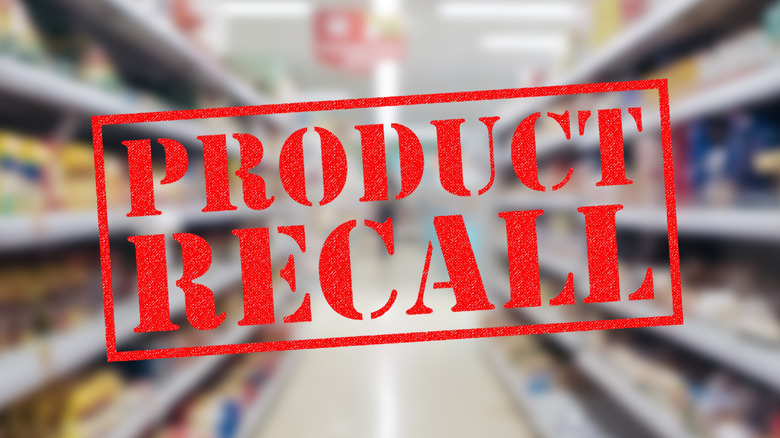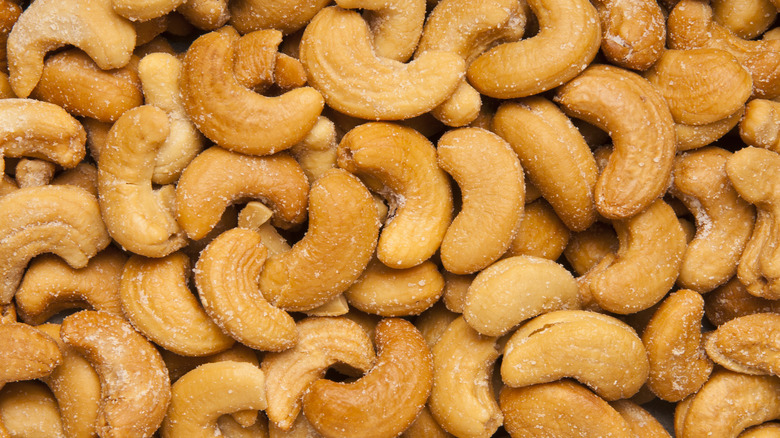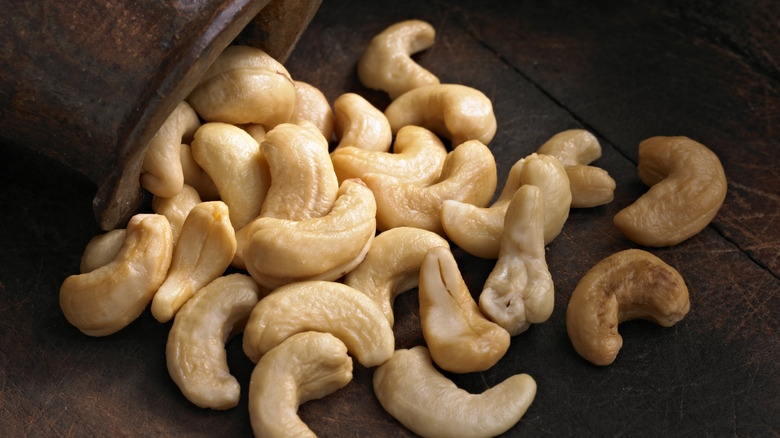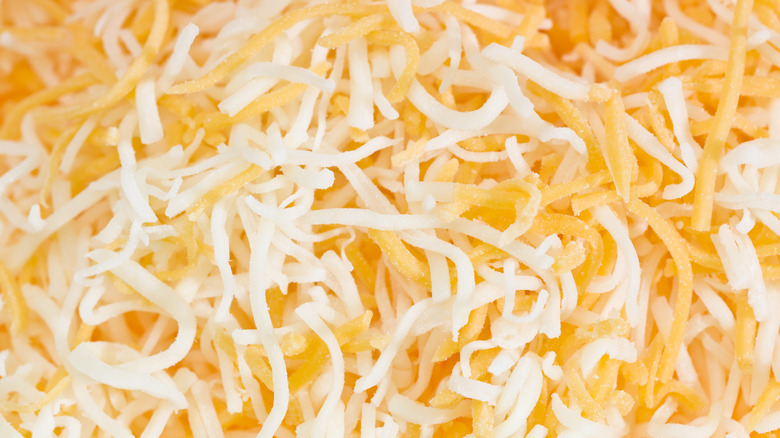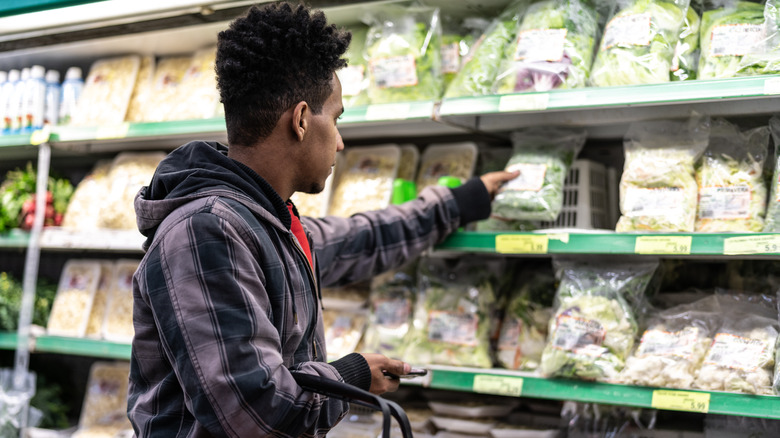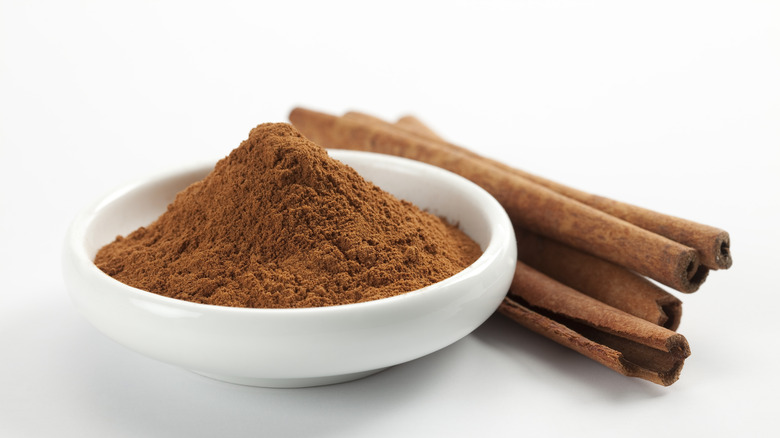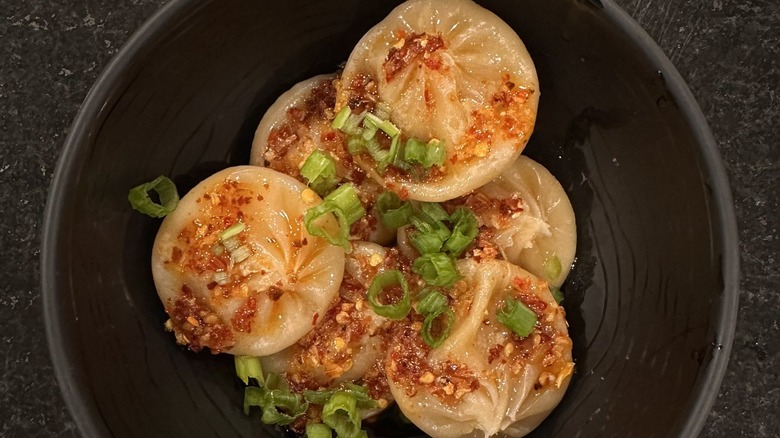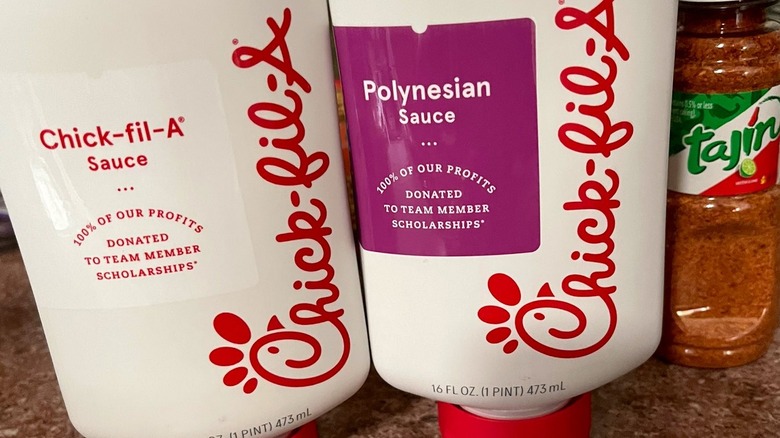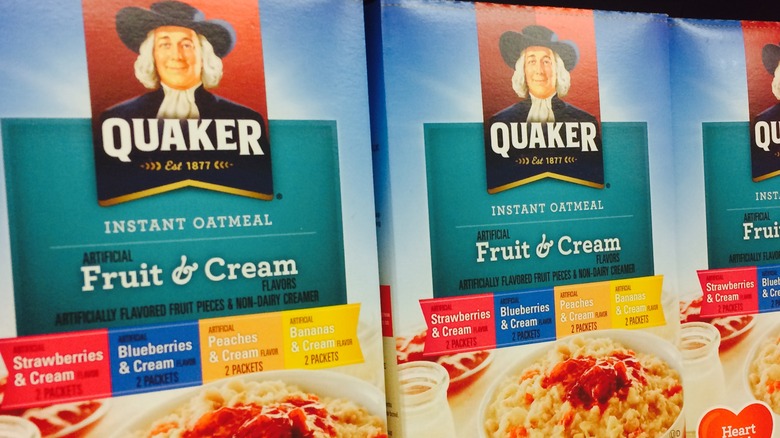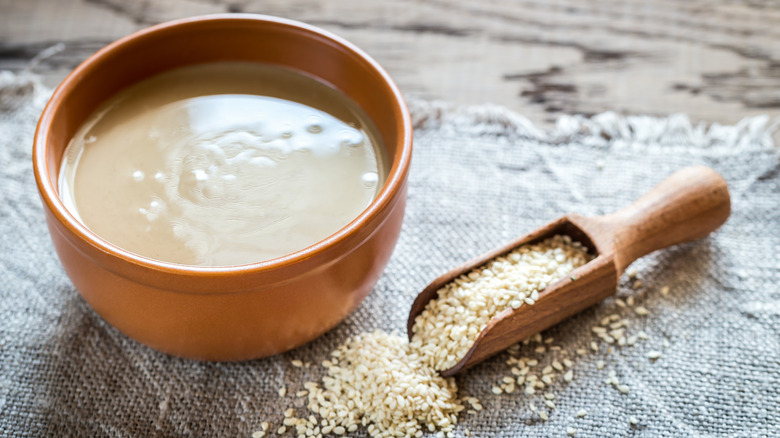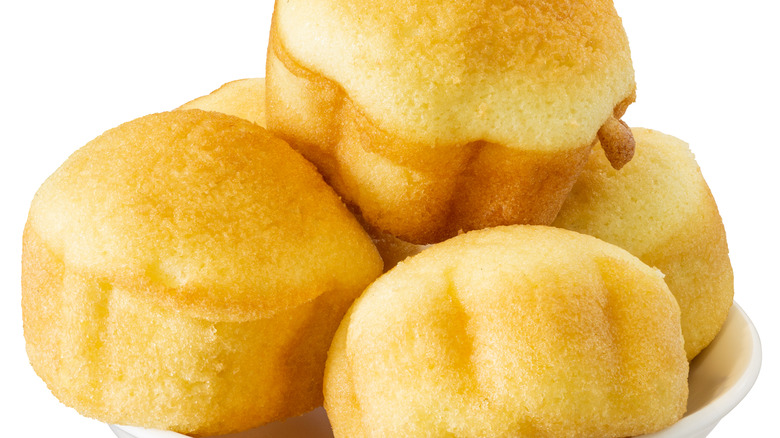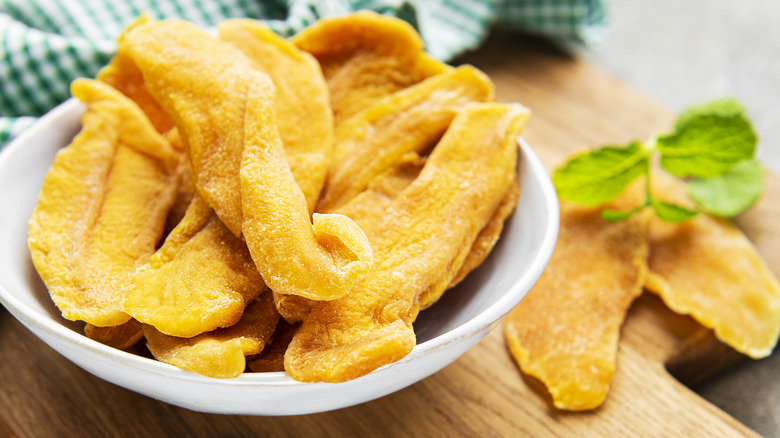The Biggest Food Recalls Of 2024 So Far
An earlier version of this article said that Sargento had recalled several of its products as part of the Rizo-López Foods recall. This has been removed as the recall did not affect any Sargento-branded products. 4/08/2024
Food recalls are a scary and unfortunately, relatively common occurrence in today's consumer society. Often they make the news, but just as often, they don't. The U.S. Food and Drug Administration (FDA) and the USDA's Food Safety and Inspection Service (FSIS) have special pages on their websites to announce food recalls. However, most people aren't going to check these government websites daily — if ever.
The fact of the matter is that unless you are paying special attention, it is unlikely that you'll hear about a food recall, especially a smaller-scale recall that does not make the national news. This can be frightening when you consider that food is recalled because there is proof that it presents a risk to the consumers who purchase it.
Food recalls can happen for a huge variety of reasons. Products may have been mislabeled, putting consumers at risk of ingesting allergens or substances they cannot eat. Sometimes, foreign substances like plastic somehow end up in food. The recalled items may also have been contaminated, leaving consumers susceptible to dangerous illnesses and bacteria, such as salmonella or listeria.
If you are worried that contaminated food may have somehow ended up in your pantry or fridge, here are the biggest food recalls that have occurred so far in 2024.
1. Trader Joe's cashews
Trader Joe's, beloved for its interesting and eclectic products, has found itself in a pickle. On March 17, the popular grocery store chain announced that it was recalling several batches of the 50% Less Salt Roasted & Salted Whole Cashews. The recall applies to lots that are best before February 21, March 1, March 8, and March 10 of 2025, and extends across 16 states. The best buy dates and the matching lot numbers can be found on the back of the clear plastic pouches holding the contaminated nuts.
The recall occurred because the nuts were potentially contaminated with salmonella, an organism that can cause serious and sometimes fatal illness. Symptoms of salmonella infections include diarrhea, fever, and stomach cramps, and health risks are especially high when symptoms continue for more than a few days. According to the FDA, salmonella was found during routine testing, although no illnesses have been reported yet. Trader Joe's announced that anyone who has purchased the tainted cashews should either throw them away or return them to the store for a full refund because they are unsafe for consumption.
2. Great Value Honey Roasted Cashews
It looks like it is a bad year for cashews because Walmart's Great Value brand has also issued a recall of the popular snack nut. The culprit, in this case, is the brand's honey-roasted variety. The recall happened because the nuts were potentially contaminated with allergens including coconut and milk. The company behind Great Value voluntarily recalled all honey-roasted cashews from a batch with a best-by date of July 8, 2025. All the cashews in question come in 8.5-ounce containers, and consumers will find the code (UPC) 078742133348 on the bottom of the can. Up to 30 states have been affected by this recall, but luckily no adverse reactions have been reported since the announcement on March 12.
The recall occurred after a consumer reported finding coconut cashews in a container labeled as honey-roasted. Following this report, the FDA conducted an investigation and found that a small number of coconut cashew packages were mislabeled and distributed as honey-roasted. So, if you have a can of Great Value honey roasted cashews in your pantry, check before eating them because you might not have the correct product. If you have purchased one of the recalled cans of cashews, you can either return them to the store for a full refund or throw them away.
3. Rizo-Lopez Foods shredded cheese
This recall affects not just one product or one store but dozens of products and grocery stores across 15 states. Federal officials are investigating cheese products from Rizo-López Foods for a widespread listeria outbreak that hospitalized more than 20 people and killed two. While these outbreaks happened in 2017 and 2021 and the source could not be traced, the FDA found the same strain of listeria in a cheese sample from Rizo-López Foods this year. Out of what is either valid concern or an abundance of caution, over 60 products manufactured by the company have been voluntarily recalled as of February 5, 2024.
The products include shredded cheese, yogurt, and sour cream sold by San Carlos, Campesino, Tio Francisco, Don Francisco, Food City, Rio Grande, Casa Cardenas, Santa Maria, Dos Ranchitos, Rizo Bros, El Huache, La Ordena, and 365 Whole Foods Market brands. Additionally, Costco and Trader Joe's have also recalled certain items that may have been affected by this strain of bacteria. Listeria can cause very serious illness, with symptoms including vomiting, nausea, persistent fever, muscle aches, severe headache, and neck stiffness.
4. Salad kits & taco kits everywhere
The ongoing listeria investigation conducted by the FDA uncovered other issues. In February, dozens of retailers recalled various salad and taco kits because they contained unbranded products supplied by Rizo-López Foods. One of these companies was Dole Fresh Vegetables, which issued a voluntary recall for eight pre-made salad kits produced under different brand names. Among them were Dole, President's Choice, and Marketside. All the salad kits contained ingredients produced on the same production line as recalled Rizo-López cheeses and were distributed across numerous U.S. states and Canadian provinces.
Another company that issued a voluntary recall following the detection of listeria was Taylor Fresh Foods, which recalled its Marketside Ranch Crunch Salad Kits due to contaminated cheese products. These kits were distributed across multiple states at the popular grocery retailer Walmart. In addition to pre-made salad kits, taco kits were also affected. Rizo-López Foods and Fresh Creations Foods recalled chicken taco kits sold at Sprouts stores in several states.
The broad number of products affected by this recall and the vast range of states and stores impacted shows the seriousness of this particularly widespread recall. As the FDA and CDC continue investigating this multi-year recall, consumers are urged to check their fridges and pantries for recalled products and dispose of any affected ones immediately.
5. Ground cinnamon
On March 6, 2024, a variety of ground cinnamon brands distributed by discount retailers were recalled because of possible traces of lead. The affected brands include La Fiesta, Marcum, MK, Swad, El Chilar, and Supreme Tradition, with products distributed in discount stores including Dollar Tree, Family Dollar, and others in California, Arizona, Washington, and Texas, late in 2023. The lead contamination came to light when the FDA conducted a routine examination of product samples in a targeted investigation sparked after an October 2023 recall of cinnamon-flavored applesauce contaminated with lead. Unfortunately, the 2023 recall happened after hundreds of children fell ill.
The agency announced that exposure to lead for longer periods of time can cause dangerously high levels in the blood. Long-term exposure can cause severe negative effects, including lead poisoning, which includes symptoms like headaches, abdominal pain, and high blood pressure. While no adverse effects from the recent recall have been reported, consumers are urged to check their spice cabinets and discard or return any cinnamon powders purchased from the affected brands.
6. Trader Joe's chicken dumplings
In yet another case from Trader Joe's, the popular grocery chain announced on March 2, 2024, that it was enacting a voluntary recall on more than 61,000 pounds of chicken soup dumplings. The dumplings in question have an expiration date of 03.07.25 and lot code C1-1 or C1-2. They are being recalled due to potential contamination from a foreign substance, which Trader Joe's identified as plastic. The chain issued the recall after being notified by consumers who had found hard plastic pieces in their dumplings. Luckily, no illnesses or injuries have yet been reported as a result of this particular recall.
The dumplings were produced by CJ Foods Manufacturing Beaumont Corporation, a company based out of California, but the recall applies to multiple states nationwide. The dumplings come in 6-ounce boxes with plastic trays and contain six dumplings each. The FSIS communicated concern regarding the fact that many dumplings remain in consumers' freezers. Anyone who has purchased the affected soup dumplings should either throw them away or bring them to Trader Joe's for a refund.
7. Chick-fil-a Polynesian sauce
It turns out that it's not only grocery store products that get recalled. In February of 2024, the popular fast-food chain Chick-fil-A issued a recall for one of its popular dipping sauces. Via an announcement on its website, the restaurant instructed consumers to dispose of any Polynesian sauces they brought home between February 14 and 27. In the announcement, Chick-fil-A said that a batch of the popular dipping sauce was mislabeled and contained another sauce with potential allergens (wheat and soy). The mislabeled sauces were distributed across 27 different states. The restaurant has also confirmed that only the dipping cups are affected, and other forms of the sauce are safe. Chick-fil-A has thrown away all affected sauces in its possession and urges consumers to do the same.
The error occurred when T. Marzetti Co., which produces the sauces for Chick-fil-A, accidentally mislabeled a large number of the sauces. Many of the dipping cups contained Sriracha, which has wheat and soy, instead of Polynesian sauce. Chick-fil-A's Polynesian sauce is one of its most popular sauces and was introduced in 1984 alongside the honey mustard and barbeque sauces. The chain describes the tangy sauce as perfectly sweet and sour.
8. All sorts of Quaker oats products
On January 11, 2024, Quaker issued a recall on several products, including a variety of Quaker chewy granola bars, Cap'n Crunch cereal bars, Quaker cereals, and instant oatmeal, among others. The reason for the recall was a potential salmonella contamination. This recall was initially announced in late 2023 but was renewed in January 2024 to include more products.
Salmonella is known to cause severe infections, especially in vulnerable populations such as young children and the elderly. This makes these products, which are popular snacks and breakfast foods for young children, especially dangerous if contaminated with bacteria.
The recall spans across all 50 states, as well as Puerto Rico, Guam, and Saipan. Quaker and the FDA, which both posted announcements about the recall, urge consumers to check their pantries for any of the products and immediately dispose of them. For further information about the recall, including product reimbursement, consumers can call Quaker Consumer Relations. Additionally, each product carries a SmartLabel QR code that can be scanned to determine whether it is part of the recall.
9. Roland tahini
As if we haven't had enough salmonella-related recalls so far this year, on February 27, 2024, Roland Foods announced that it was recalling a specific production code of its 16-ounce tahini due to a potential salmonella contamination. The recall affects the tahini bearing batch number P024581, UPC number 10041224701509, and a best-by date of October 19, 2024. These products were distributed from September 2023 through January 2024, reaching a large number of states in a variety of retail stores and food service outlets.
The salmonella contamination was detected during standard testing by the Michigan Department of Agriculture and Rural Development, and the recall was announced shortly afterward. Luckily, no illnesses related to the recalled batch of tahini have yet been reported. Salmonella can lead to serious health complications, including arterial infections and arthritis.
Roland Foods and the FDA urge consumers in possession of the affected tahini to discard it immediately. Roland Foods is conducting an investigation and collaborating with the product manufacturer to determine the root cause of the contamination, and in the meantime, has ceased its distribution.
10. Banh Ba Xa and Banh Pia Products
While not all recalls are likely to lead to serious illnesses or life-altering complications, the presence of undeclared allergens in consumer products is an issue that can have serious implications for those affected. On February 23, 2024, LQNN, Inc., a company based out of California, announced a voluntary recall of Banh Ba Xa and various Banh Pia products because of a potential unlisted egg content. These products pose a severe risk to individuals with egg allergies, potentially leading to life-threatening reactions upon consumption.
All of the affected Bahn Pia products were manufactured by Tan Hue Vien, sold under the Saigon Gourmet label, and packaged in colorful foil bags. The cakes were distributed across 32 different states as well as in Canada, and the LQNN is doing its best to recall any unsold products from distributors before they make it to wholesalers, retail stores, and online sites.
These products were accidentally covered in an egg wash. When the company discovered this fact, the recall was announced and an investigation was launched. The conclusion was the mistake occurred due to an error at the manufacturer's production and packaging line. Anyone who has purchased the recalled items should return them for a refund or discard them. While no illness has yet been reported, the company has halted production until the mistakes have been corrected to prevent future repetition.
11. Golden Owl mango
On February 16, the Truong Giang Distribution Corporation based out of Philadelphia, announced a recall of its Golden Owl Dried Mango due to undeclared sulfites. While sulfites occur naturally in some foods and are added to others to preserve their shelf-life, some people have allergies or sensitivities to them, which makes the absence of notice dangerous to consumers. The product was packaged in 7-ounce, clear plastic containers with the UPC 816710-024461 and distributed nationwide in retail stores.
When the New York State Department of Agriculture and Markets conducted a routine sampling of Golden Owl Dried Mango, the organization detected sulfites that were not listed among the ingredients. After this discovery, the recall was announced, though no illnesses have been reported so far. An investigation into the matter found that the mistake was due to a temporary failure in the manufacturer's labeling process.
Consumers who have purchased any Golden Own Dried Mango this year are urged to discard or return it to its place of purchase for a refund. Additionally, the Truong Giang Distribution Corporation may be contacted during normal business hours for further inquiries.
